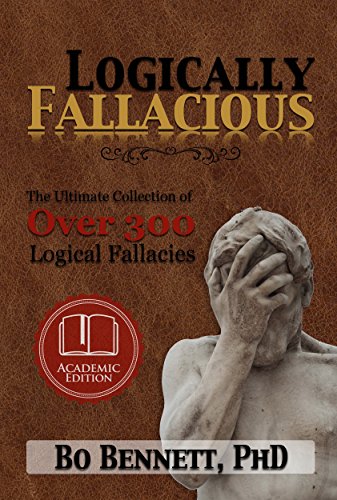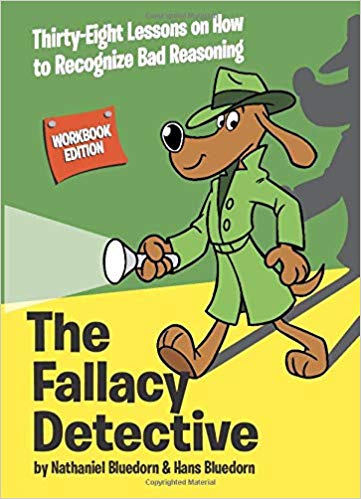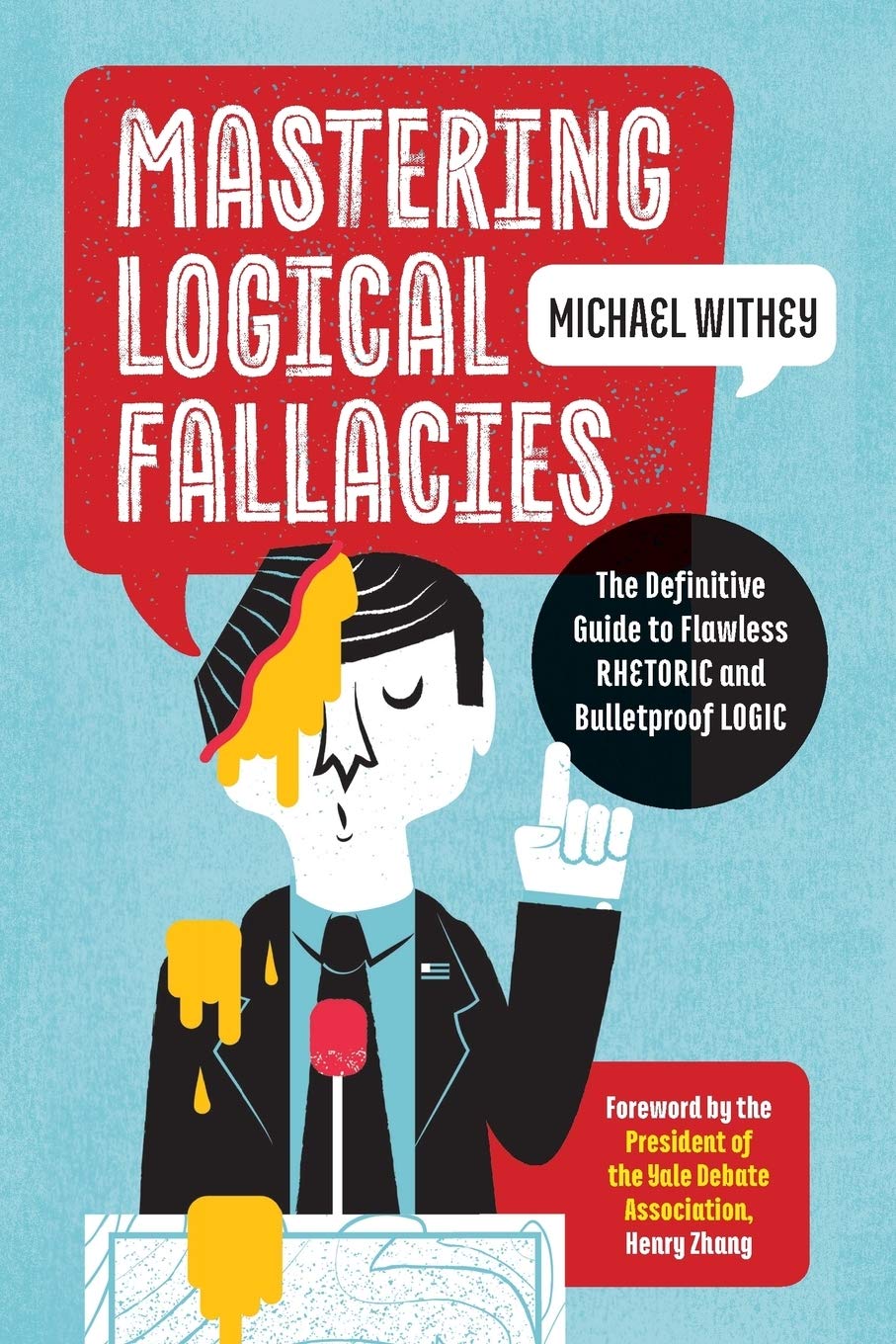
Propositional Fallacies
A propositional fallacy is one where an error in logic takes place due to compound propositions--a proposition is a 'statement'. In order for a compound proposition to have a true value, each component proposition must also be true.
Logic formulas:
- Affirming a disjunct: A or B; A; therefore not B
- Affirming the consequent: A, then B; B, therefore A
- Denying the antecedent: If A, then B; not A, therefore not B
Example of Propositional Fallacies
- William Shatner is Captain Kirk or he is in Miss Congeniality. William Shatner is in Miss Congeniality. Therefore he is not Captain Kirk.
It is possible for William Shatner to be in both of these movies (in fact he was). - I am going to bed or reading a book. I feel really tired tonight, so I will go to bed. So, I cannot read.
It is possible to go to bed, as well as read a book.
Alternative Name: Denying the Antecedent

Books About Logical Fallacies
A few books to help you get a real handle on logical fallacies.





Propositional FallaciesExtended Explanation
Propositional fallacies are errors in reasoning that occur when the premises of an argument are flawed. In other words, propositional fallacies occur when the statements that are used to support an argument are incorrect or illogical. These fallacies can occur in any type of argument, whether it be a formal logical proof or an everyday conversation.
Types of Propositional Fallacies
There are many different types of propositional fallacies, each with its own unique characteristics and ways of presenting themselves in an argument. Some common types of propositional fallacies include:
- Fallacy of Affirming the Consequent: This fallacy occurs when someone assumes that a statement is true because its consequence is true. For example, "If it rains, the ground will be wet. The ground is wet, therefore it rained."
- Fallacy of Denying the Antecedent: This fallacy occurs when someone assumes that a statement is false because its antecedent is false. For example, "If it rains, the ground will be wet. It did not rain, therefore the ground is not wet."
- False Dilemma Fallacy: This fallacy occurs when someone presents a situation as if there are only two choices, when in fact there are more than two. For example, "Either you are with us or you are against us."
- Begging the Question Fallacy: This fallacy occurs when someone assumes the truth of the conclusion in the premise. For example, "God exists because the Bible says so, and the Bible is the word of God."
- Ad Hominem Fallacy: This fallacy occurs when someone attacks the person making the argument, rather than the argument itself. For example, "John's argument is not valid because he is a criminal."
Propositional fallacies are common in everyday arguments and can be difficult to identify. However, it is important to be aware of these fallacies in order to make sound and logical arguments. By understanding the different types of propositional fallacies and how they present themselves in arguments, we can avoid making these errors and strengthen the quality of our arguments. Additionally, being aware of propositional fallacies can help us to identify when others are using faulty reasoning and avoid being misled by their arguments.